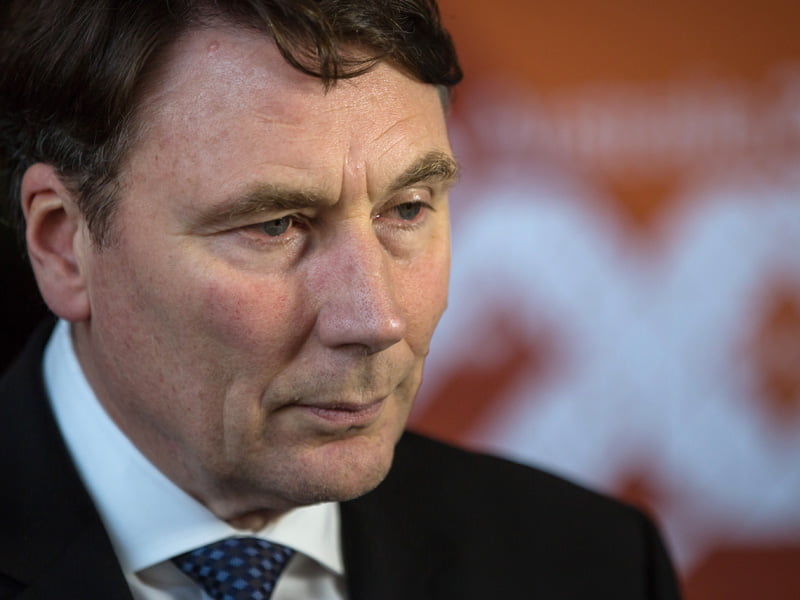David Thodey uses the word ‘wonderful’ often – to describe Australia’s research, opportunities, education, skills and assets. The fact he doesn’t use the word to describe the NBN is telling.
Indeed Mr Thodey predicts a rough period for the national broadband network over the next few years – but believes it will, given time, come good.
Mr Thodey has a storied CV; he’s the former CEO in Australia of both IBM and Telstra, and is now chairman of the CSIRO and Jobs for NSW.

The latter is a pairing which he views as symbiotic, one creating the science and research to advance Australia and Australian industry, the other ensuring that people are skilled for and part of the resulting fourth industrial revolution.
That revolution demands good broadband communications.
While at Telstra, Mr Thodey negotiated its $11 billion deal with the National Broadband Network Corporation allowing the company to leverage Telstra’s infrastructure when building the NBN.
The decision last month by NBN Co to call a halt to the rollout of the network using HFC because of problems it was experiencing will delay the HFC-connection payments to Telstra which were negotiated in that deal for six to nine months.
So, five years on, how well does Mr Thodey think the NBN is performing?
“Who can argue against the principle and vision of a better connected society? There are financial realities that we are having to work through, because of the way the NBN was initially set up – but I think we will get there.
“We are going to go through a bit of a rough period for a few years – but we can transition to perfectly adequate infrastructure, connect more people and expand that network out further and increase the speeds – so give it time.”
Adequate infrastructure note, not wonderful.
“I’m not saying we should excuse where there has been poor performance or bad customer service – let’s get onto that and fix it – but this can be a great platform to move forward and the multi technology [mix] allows you to invest in faster and more resilient infrastructure over time as you have the fiscal capability to do so. Let’s not get too negative.”
Mr Thodey stresses that innovation of any sort should be viewed as a means to create value for society, for the environment, and to release commercial value. It is not an end in itself.
“It’s like science. Science is a way of discovering the world to get a better outcome – yes there is pure science – but you should always be looking to say ‘how can this make a difference’, so innovation is not the end point, it’s a means to the end.”
The impact and benefits also need to be carefully weighed he said.
“So the great debate is whether AI (artificial intelligence) is the great gremlin with potential risks that Elon Musk warns of. Well, of course there are areas of AI that are worrisome,” but Mr Thodey believes that needs to be accounted for, rather than an excuse for avoiding investment in the field.
“Automobiles kill people, but they also create enormous value. Let’s stare into where the risks are and get ahead of them and have a real discussion about it and then see what we need to do to make sure a better outcome for us all.”
And that outcome and impact stretches across every sector.
“I have always struggled with the term ‘digital economy’. I only see one economy, but economies are impacted by various trends and changes,” Mr Thodey told The Establishment.
Right now he sees a pivotal moment when significant technological change associated with cloud connectivity, artificial intelligence, the Internet of Things and big data has the capacity to create value for individuals and corporates while having a societal and quality of life impact.
The obvious opportunities he said are in mining, agriculture and food, and the services sectors.
However there is work to be done in terms of education and upskilling. “By some of the standard metrics we have used we are definitely slipping and that is a concern. Education is the foundation of any great society.
“We need to make a number of actions to attract great teachers, make education exciting and also look at that total continuum for secondary to VET to tertiary and post grad.
“Education is also about attitude about how we turn up and lateral thinking and I think we do relatively well there but we need to keep inspiring each other to reach for the stars.
“But we do need to get the basics right.”
And that includes preparing people for the new world of work where many routine tasks are automated and humans are supported by intelligent systems with decision making.
“I feel very strongly about this. We have an ethical moral responsibility to move all of Australia forward and technology is not the monster – it’s the enabler of the new.
“There is no question that technology will drive improved productivity and automation and robotics will replace some manual tasks … so the nature of the job will change and we need to steer into that, equipping the workforce – both the people coming in to the workforce and existing workforce – with new skills they will require working in that environment so they can transition and are not left destitute.”
Do you know more? Contact James Riley via Email.

